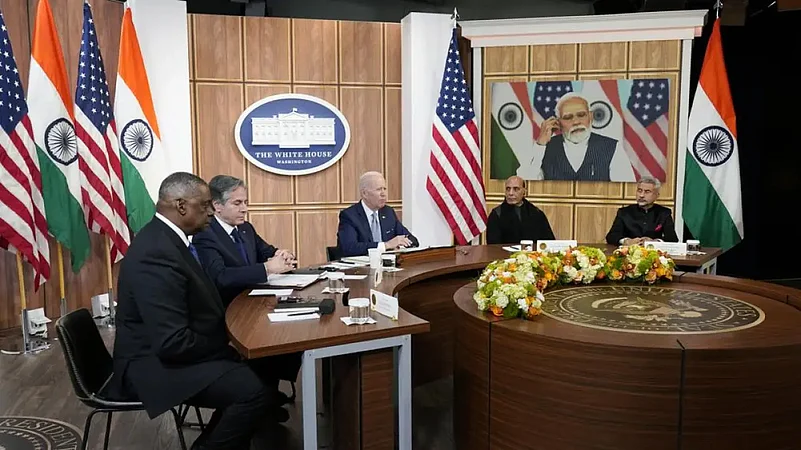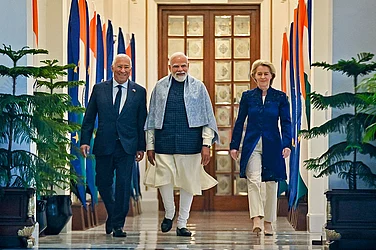For the first time since the Biden administration came to office, the US has raised the issue of India’s human rights record in a public forum.
US Secretary of State Antony Blinken spoke on this in the opening statement after the 2+2 talks in Washington. To be noted is the fact that this was not in answer to a reporter’s question.
Blinken spoke about a shared commitment to democratic values and the importance of protecting human rights. Whether this was discussed in detail during talks with Foreign Minister Subrahmanyam Jaishankar and Defence Minister Rajnath Singh is not known. It was a fleeting mention and Blinken did not elaborate on the subject. What is important is that he raised the issue.
"We also share a commitment to our democratic values, such as protecting human rights. We regularly engage with our Indian partners on these shared values, and to that end, we’re monitoring some recent concerning developments in India, including a rise in human rights abuses by some government, police, and prison officials," Blinken said
The Democratic party had always emphasised human rights unlike the Republicans, particularly former President Donald Trump. He did not care a fig about human rights and walked out of the UN Human Rights Council in 2018 when Biden came to the US rejoined.
Lawmaker Ilhan Omar, a young Democrat from the progressive wing of the party, had brought up the issue of India’s sad human rights record under the BJP government. She had asked, "What does Modi need to do to India’s Muslim population before we will stop considering them a partner in peace?" Perhaps Blinken raised the issue publicly keeping the progressive democratic base in mind. Whether this will lead to more questions on rights violations remains to be seen.



























